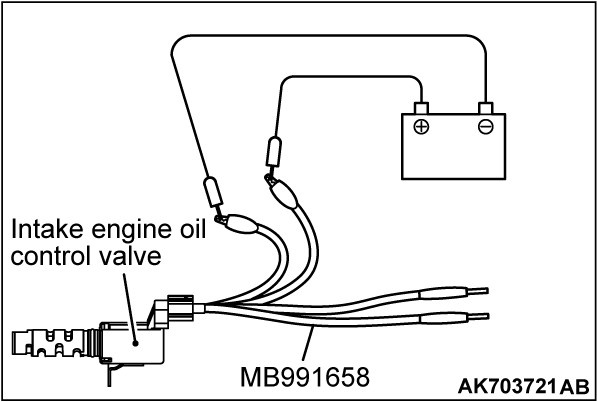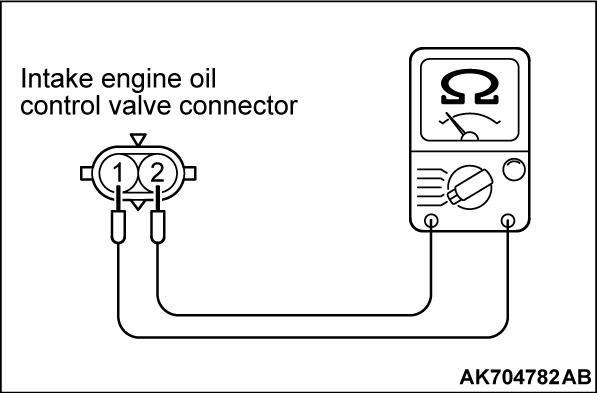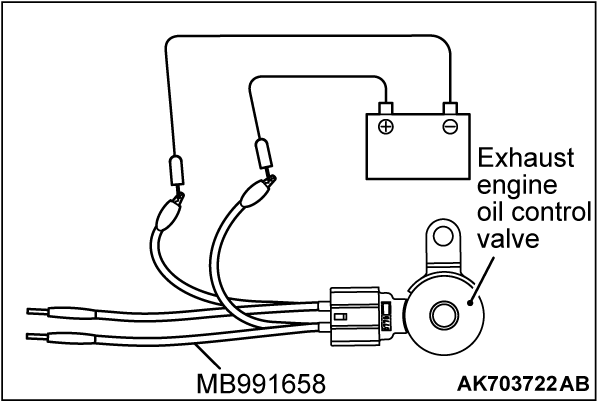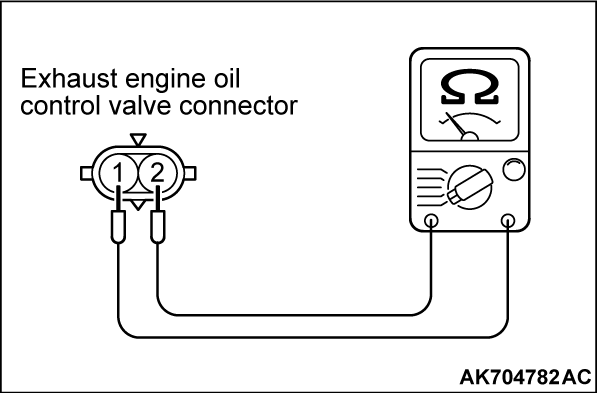ENGINE OIL CONTROL VALVE CHECK
Required Special Tool:
- MB991658: Test Harness
Intake engine oil control valve
<Checking the Operation Sound>
1. Disconnect the intake engine oil control valve connector.
2.
Check that the operation sound of the intake engine oil control valve can be heard when the positive battery voltage is supplied to the intake engine oil control valve. (Use the special tool MB991658 to connect terminal No. 2 of the intake engine oil control valve connector to the positive battery terminal and terminal No. 1 to the negative battery terminal.)
| caution | To prevent the coil from burning, keep the duration of the voltage application as short as possible. |
3. If the operation sound cannot be heard, replace the intake engine oil control valve.
Exhaust engine oil control valve
<Checking the Operation Sound>
1. Disconnect the exhaust engine oil control valve connector.
2.
Check that the operation sound of the exhaust engine oil control valve can be heard when the positive battery voltage is supplied to the exhaust engine oil control valve. (Use the special tool MB991658 to connect terminal No. 2 of the exhaust engine oil control valve connector to the positive battery terminal and terminal No. 1 to the negative battery terminal.)
| caution | To prevent the coil from burning, keep the duration of the voltage application as short as possible. |
3. If the operation sound cannot be heard, replace the exhaust engine oil control valve.
![[Previous]](../../../buttons/fprev.png)
![[Next]](../../../buttons/fnext.png)



